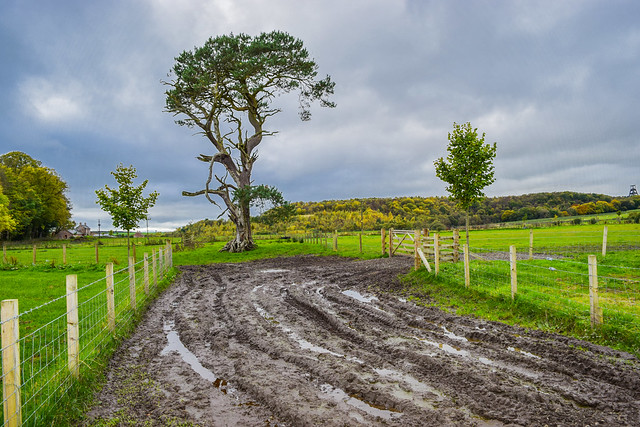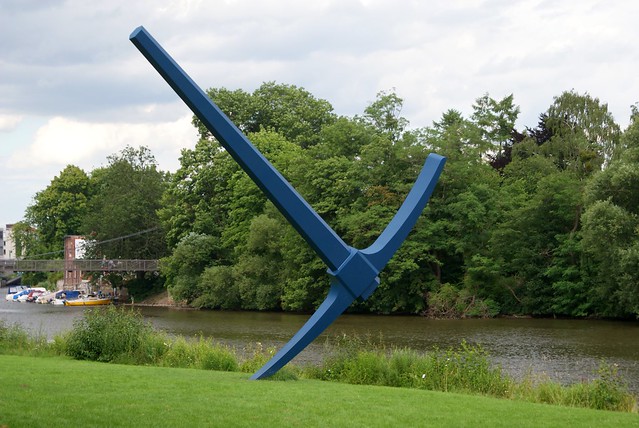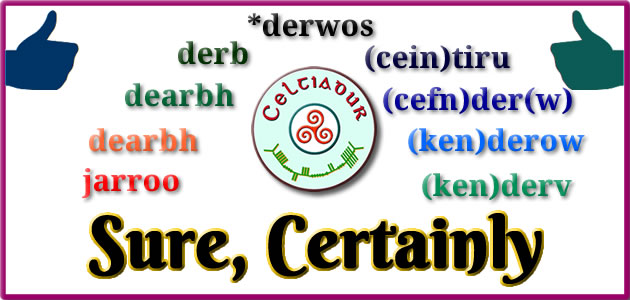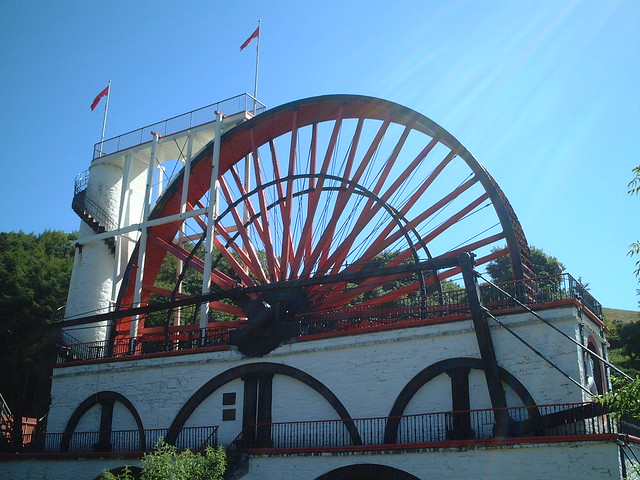Words for gravel, grit and related things in Celtic languages.
Words marked with a * are reconstructions.
| Proto-Celtic | *griyano- = gravel |
|---|---|
| Old Irish (Goídelc) | grïan [ˈɡʲrʲi.an] = gravel, sand, river bottom, sea floor grindell = gravel, lake bed, sea bed |
| Middle Irish (Gaoidhealg) | grian, grían = gravel, sand, sea or river bottom, basis, foundation, earth, land grenach, grenaig = gravel grindell, grinnell, grinneal = sea or lake bed, gravel, bedrock, foundation, floor, bottom |
| Irish (Gaeilge) | grean [ɟɾʲan̪ˠ] = gravel, grit, coarse sand; to engrave grian = (sea, lake, river) bottom, earth, surface grianach = gravelly greanach = gravel, gravelly spoil, gritty greanadh = engraving, shapeliness, shape, figure greanadóir = engraver greanadóireacht = engraving greanchloch = gritstone, millstone grineall = (sea, lake, river) bed, bedrock, depth, foundation |
| Scottish Gaelic (Gàidhlig) | grean [grʲɛn̪] = (river / lake) bed, gravel, coarse sand grean-aibhne = riverbed grinneal [grʲin̪ʲəL] = gravel, grit, (river / sea) bottom grinnealach = deep, gulfy, gravelly, sabulous (sandy or gritty) grinnealachd = grittiness |
| Manx (Gaelg) | grineen = bead, granule, grit, pinch grineenagh = gritty, grained, grainy, granulated, granulous grineenid = grittiness |
| Middle Welsh (Kymraec) | graean, grayan, graeeyn = gravel, coarse sand, shingle, grit, grain, granule graenauc, graeanog, graianoc = gravelly, full of gravel, harsh, grating |
| Welsh (Cymraeg) | graean [ˈɡreɨ̯.an / ˈɡrei̯.an] = gravel, coarse sand, shingle, grit, grain, granule grae(a)nog = gravelly, full of gravel, harsh, grating graeanu = to (spread) gravel (over), to granulate, scour, grit |
Etymology: uncertain, possibly related to Proto-Celtic *grāwā (gravel, pebbles) – see below [source].
| Proto-Celtic | *grāwā = gravel, pebbles |
|---|---|
| Irish (Gaeilge) | griothal = gravel, gravelly soil griothalach = gravelly, gritty |
| Scottish Gaelic (Gàidhlig) | grothal = gravel |
| Proto-Brythonic | *grọw = gravel, pebbles |
| Old Welsh (Kembraec) | gro = gravel, shingle |
| Middle Welsh (Kymraec) | gro = gravel, shingle grodir, gro dir = gravelly land, sandy soil, grave |
| Welsh (Cymraeg) | gro [ɡroː] = gravel, shingle, gravelly shore, strand grobwll = gravel pit, grave grodir = gravelly land, sandy soil, grave |
| Old Cornish | grou = gravel, sand |
| Middle Cornish (Cernewec) | grow = gravel, sand |
| Cornish (Kernewek) | grow = gravel growan = granite growanen = pebble growen = gravel |
| Middle Breton (Brezonec) | grean, grouan = gravel grouanec = gravelly, grave pit groanenn = piece of gravel |
| Breton (Brezhoneg) | grouan [ˈɡruːãn] = gravel grouanañ = to engrave grouaneg = gravelly, grave pit grouanenn = piece of gravel grouanus = gravelly |
Etymology: from Proto-Indo-European *gʰroh₁weh₂, from *gʰreh₁w- (to grind).
Words from the same Proto-Celtic roots include grava (gravel) in Catalan, grève (flat, sandy land along the sea or a large river) in French, grava (gravel) in Spanish, and grave (gravel, shore, gravelly ground) in Occitan [source].
Words from the same PIE roots include: grit, groat, grout and gruel in English, Grieß (semolina) in German, grjót (coarse stones, rubble) in Icelandic, gryt (a badger’s sett, a fox’s den) in Swedish, riutta (reef) in Finnish, and grúodas (frozen mud or earth) in Lithuanian [source].
| Middle Irish (Gaoidhealg) | graibél = gravel, sand |
|---|---|
| Irish (Gaeilge) | gairbhéal = gravel gairbhéalach = gravelly gairbhéalta = gravelled |
| Scottish Gaelic (Gàidhlig) | greabhal = gravel |
| Manx (Gaelg) | garvel = gravel |
| Middle Welsh (Kymraec) | grafel, gravael, gravel = gravel |
| Welsh (Cymraeg) | graf(a)el = gravel grafelu, grafaelio = to sprinkle with gravel, make sore by chafing graf(a)eliog = gravelly |
Etymology: from English gravel or Middle English gravel / gravail(le) (sand, gravel, shingle, pebbles), from Old French gravele (gravel), a diminutive of grave (gravel, seashore), from Medieval Latin grava, possibly from Gaulish grava, from Proto-Celtic grāwā (gravel, pebbles), from Proto-Indo-European *gʰroh₁weh₂, from *gʰreh₁w- (to grind) [source].
Sources: Wiktionary, Etymological Dictionary Of Proto Celtic, In Dúil Bélrai English – Old Irish glossary, eDIL – Electronic Dictionary of the Irish Language, Teanglann.ie, Am Faclair Beag, An etymological dictionary of the Gaelic language, Fockleyreen: Manx – English Dictionary, Online Manx Dictionary, Gaelg Corpus, Geiriadur Prifysgol Cymru, Lexicon cornu-britannicum : a dictionary of the ancient Celtic language of Cornwall, Gerlyver Kernewek, Devri : Le dictionaire diachronique du breton, Dictionnaires bilingues de Francis Favereau / Edition Skol Vreizh, TermOfis













